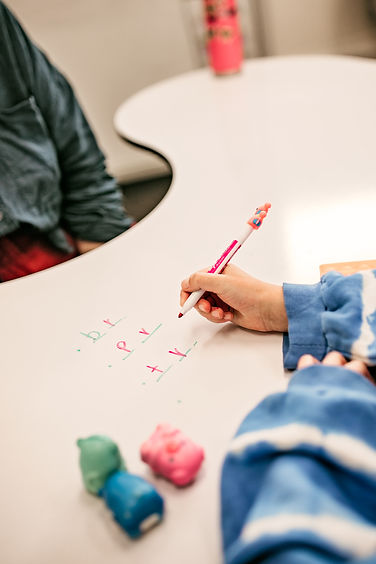
Phonics Heroes (K–3)
Some children need more time, more practice, and more structure to learn how reading and spelling work. That’s exactly what our Phonics Heroes program is designed to give them.
This small-group program is based on the UFLI Foundations routine (from the University of Florida Literacy Institute), which is built on decades of research into how children learn to read. The approach is clear, engaging and designed specifically for students who benefit from explicit instruction and lots of repetition.


Who is it for?
Phonics Heroes is for students in Kindergarten to Year 3 who:
Are finding it hard to keep up with class-based phonics instruction
Need help blending and segmenting sounds to read and spell
Benefit from repeated, structured teaching in a calm environment
Are in the early stages of learning how reading and spelling work
We welcome learners who thrive with steady, clear teaching that builds skills gradually and gives them time to practise.

What's included?
Small group size (max. 3 students per group)
Grouped by year level (K, 1, 2, 3)
Structured, evidence-based phonics instruction using the UFLI Foundations scope and sequence
Taught by trained educators who understand how to make learning stick
Online options available
Set weekly time slots with simple online booking and payment



why it works?
Our teaching, based on the UFLI approach, is supported by research and helps students build reading and spelling skills through clear, systematic instruction. The program focuses on:
Sound awareness
Letter-sound relationships
Blending and segmenting
Reading fluency
Spelling patterns
It’s structured, cumulative, and delivered in a way that makes sense for young learners.
Frequently Asked Questions

Testimonial

Register Your Interest
Phonics Heroes (K–3)
Thanks for your interest in our Phonics Heroes program.
Please fill out the form below to let us know you’re interested. We’ll keep you updated as new group opportunities become available.
